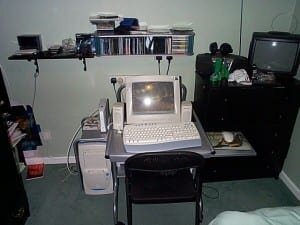- Joined
- Nov 1, 1998
Computers: Toys or Tools?
by David
Click here to continue reading.
Discuss this article below. If you are interested in contributing to the front page (www.overclockers.com), please feel free to contact splat, mdcomp, or hokiealumnus. For the latest updates, follow Overclockers.com on Twitter (@Overclockerscom).
by David
I've always been fascinated with computers, ever since my dad bought a 66 MHz PC back in the mid-1990s. They provide endless opportunities for customization, overclocking and programming amongst their usual functions. I've felt a shift over the past few years, however. Computers, for me, have moved more towards being items with a specific purpose and usage than a means of pleasure. Maybe I'm getting old, or the nature of the computer systems we interact with means that tinkering is no longer as useful.
Click here to continue reading.
Discuss this article below. If you are interested in contributing to the front page (www.overclockers.com), please feel free to contact splat, mdcomp, or hokiealumnus. For the latest updates, follow Overclockers.com on Twitter (@Overclockerscom).
Last edited by a moderator:
